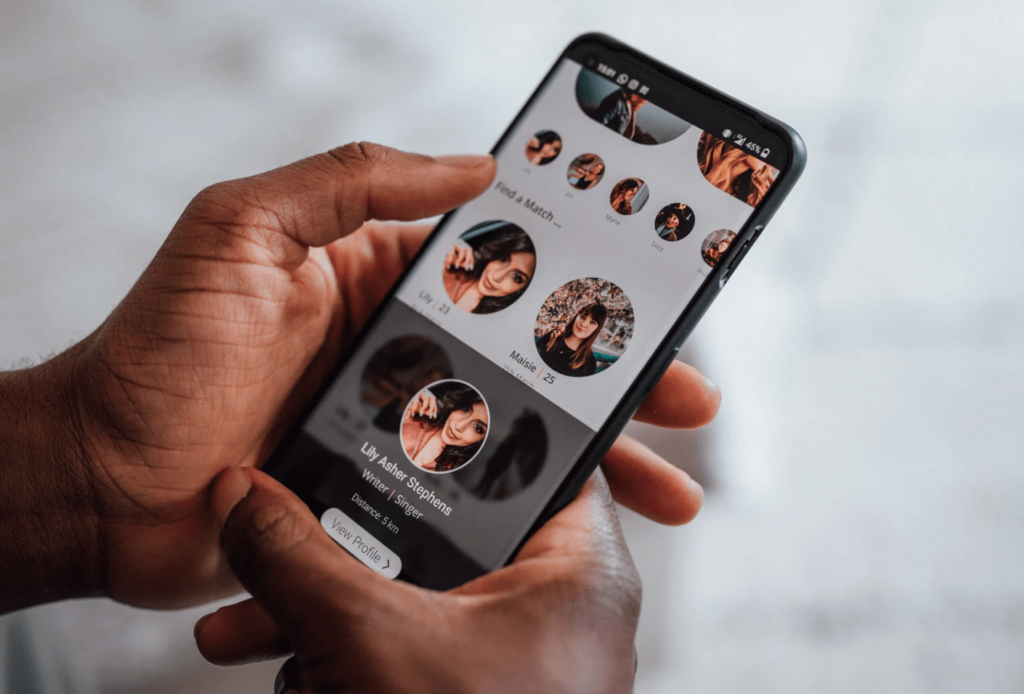Las personas que nacieron en la generación “Zoomer” (aproximadamente entre 1997 y 2012) han hablado sobre las dificultades que han tenido para mudarse.

La creadora de We Met IRL, Maxine Williams, de 28 años, describió a su generación como “un poco asustada” cuando se trata de conocer gente en persona.
La creadora de We Met IRL, Maxine Williams, de 28 años, describió a su generación como “un poco asustada” cuando se trata de conocer gente en persona. Según Naomi Anderson-Subryan de NBC News
Esta estrategia está ganando terreno, pero tiene un gran defecto: la gente de su edad no es muy buena coqueteando.
Sanjongco, residente de Los Ángeles, dijo: “Creo que el coqueteo está muriendo”. “Hoy en día, todo lo que se necesita para que alguien exprese interés en ti es pedirte tu cuenta de Instagram, y luego te enviará un mensaje directo o deslizará hacia arriba en tu historia”.
Según Sanjongco y muchos otros miembros de la Generación Z (los nacidos entre 1997 y 2012), encontrar el amor fuera de línea es un desafío, ya que cada vez más personas dudan en acercarse a extraños en persona.
Según estudios recientes, algunos Zoomers pueden sufrir ansiedad social y evitar hablar con gente nueva. Por ello, para ciertos miembros de la Generación Z resulta cada vez más difícil conocer a posibles parejas en persona. Muchas personas se han cansado de las opciones aparentemente ilimitadas que se les ofrecen tras años de citas por Internet. En consecuencia, los jóvenes están abandonando las redes sociales en favor de las reuniones cara a cara.
Maxine Williams, la creadora de We Met IRL, de 28 años, describió a su generación como “un poco asustada” cuando se trata de conocer gente en persona. “Ese sentimiento genuino de, ya sabes, 'Hola, ¿cómo estás?'”
Benjamin Camras, un “entrenador de coqueteo” en Instagram con más de 116.000 seguidores, ha visto una “relación de amor-odio” entre las aplicaciones de citas y su audiencia, mayoritariamente de la Generación Z.
El abuso sexual de varios perros llevó al encarcelamiento de un especialista en cocodrilos de renombre mundial
Por alguna razón, Camras (38 años) se siente obligada a seguir con ellos, aunque haga todo lo posible por evitarlos. “Quiero decir, ¿qué otra forma hay para mí de conocer gente?”.
Según Camras, las aplicaciones de citas han hecho que las personas busquen relaciones superficiales que aumenten su autoestima, lo que puede llevar a una experiencia de citas impersonal. Para muchos, la incapacidad de establecer relaciones genuinas en la vida real es un resultado directo de su hábito de dejar que sus “momentos destacados” brillen en línea.
En este tipo de relación, “las citas se centran en ti, en la validación y la atención que recibes”, como dijo Camras. Esto puede tener efectos en el mundo real, ya que los jóvenes que se involucran en el flirteo pueden volverse egocéntricos en su búsqueda de validación, lo que, como señaló Camras, los distrae del momento presente.
Según Camras, "en ese punto estás completamente fuera del coqueteo" cuando el coqueteo adquiere un aire de actuación o indica que uno está buscando validación o aceptación externa.
Mientras esperaba en el complejo de apartamentos de su amiga en Los Ángeles, Sanjongco supuestamente entabló una conversación con un hombre alto y soltero. Ella no tenía idea de que él pensaba que ella era adorable hasta que su amigo le reveló que le había preguntado por su nombre de usuario de Instagram.
Como las personas ya no saben leer el lenguaje corporal, Sanjongco cree que coquetear puede ser aterrador. Respondió que la gente está acostumbrada al "interés garantizado" que muestran las aplicaciones de citas.
Sin embargo, mencionó que ha visto personas que son “muy diferentes a la forma en que se presentan” en las aplicaciones de citas, y que algunas de estas cuentas son demasiado simuladas.
¿Por qué la Generación Z ha tenido tantas dificultades para coquetear? Según Williams, la epidemia
Algunos estudiantes comenzaron la universidad durante el confinamiento, lo que les dificultó conocer gente nueva y establecer relaciones. La combinación de todo esto y el hecho de que muchos jóvenes han crecido con acceso constante a Internet ha hecho que nunca “tengan la oportunidad de desarrollar esas habilidades”, como dijo Williams.
Según Williams, si bien puede resultar humillante que los “dejen en visto” o que los “abandon” en línea sin dar explicaciones, Internet ha servido como escudo para los jóvenes contra el dolor del rechazo. Algunos miembros de la Generación Z pueden tener “miedo a ser percibidos” cuando se exponen, lo que los lleva a creer que los demás los están juzgando.
Williams señaló que ha visto un cambio en los últimos meses, ya que los jóvenes se han vuelto más extrovertidos, a pesar del hecho de que las citas en la vida real son un desafío para la Generación Z.
Según la empresa, el año pasado se registraron 1,5 millones de búsquedas de este tipo de eventos en la plataforma de experiencia en vivo y venta de entradas Eventbrite. Los asistentes a los eventos de Williams han mostrado una creciente disposición a asistir a los eventos solos, añadió.
Williams dijo que los jóvenes recurren cada vez más a la “terapia del rechazo” en plataformas como TikTok, poniéndose en circunstancias en las que se ven obligados a afrontar la perspectiva del rechazo.
Según Williams, la única forma de superarlo es seguir adelante: “Cuanto más practiques, menos intimidante te resultará”.
Las personas pueden ser menos comunicativas en sus intentos de coquetear si esperan un resultado determinado, por lo que es aconsejable "desprenderse de las expectativas", como lo expresó Camras.
“Deja que el coqueteo termine siendo divertido”, dijo Camras. Compartir algo de energía positiva y hacer feliz a otra persona es un acto de servicio en mi opinión, por lo tanto, lo considero tanto una muestra honesta de interés como una declaración genuina de altruismo. Es genial si todo el coqueteo se reduce a un breve encuentro, algunas risas y una sonrisa en los rostros de ambos.


